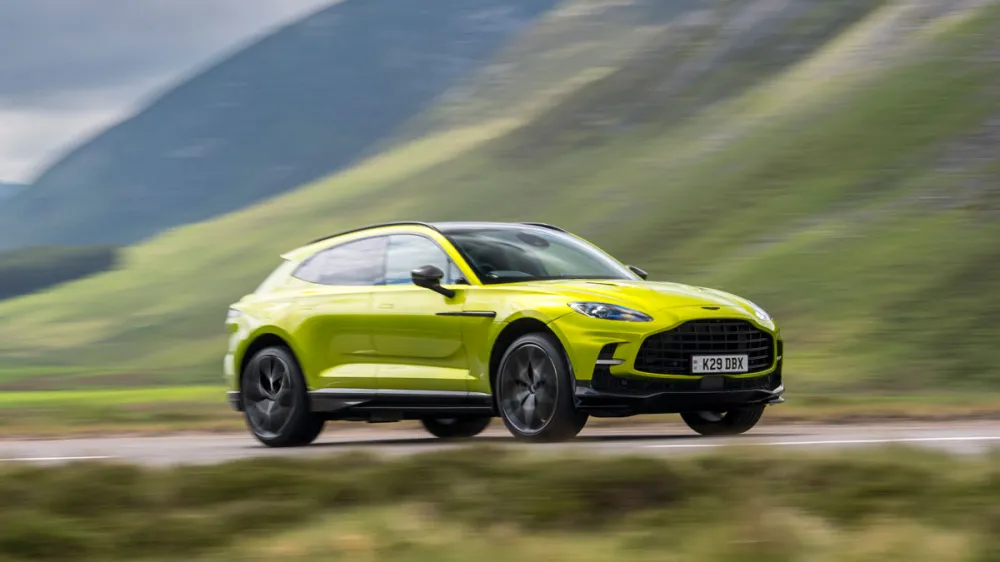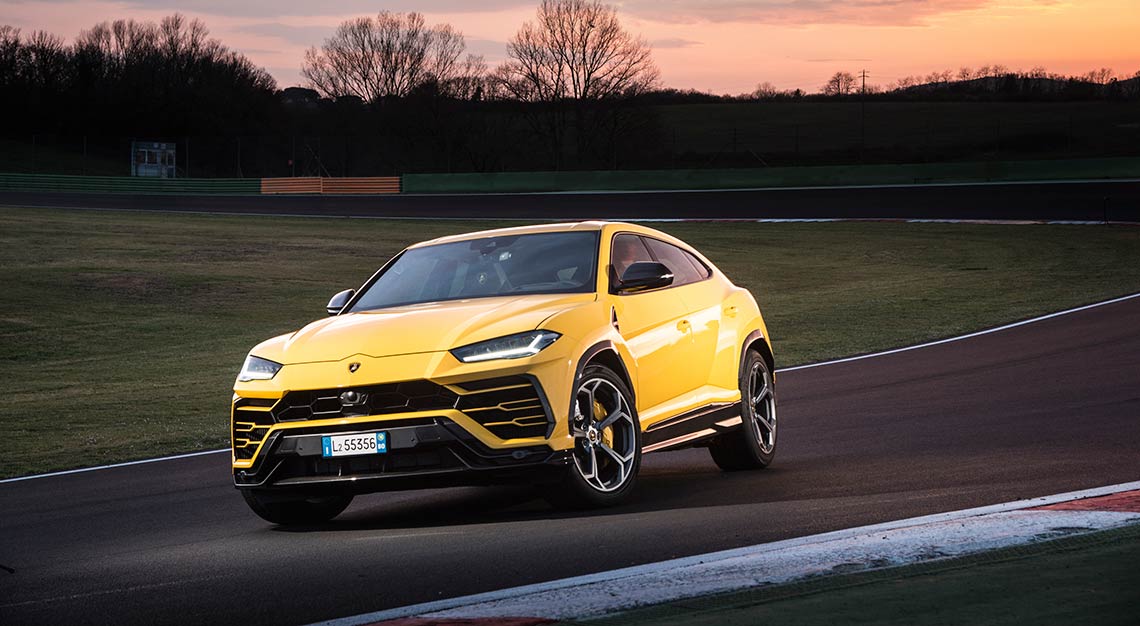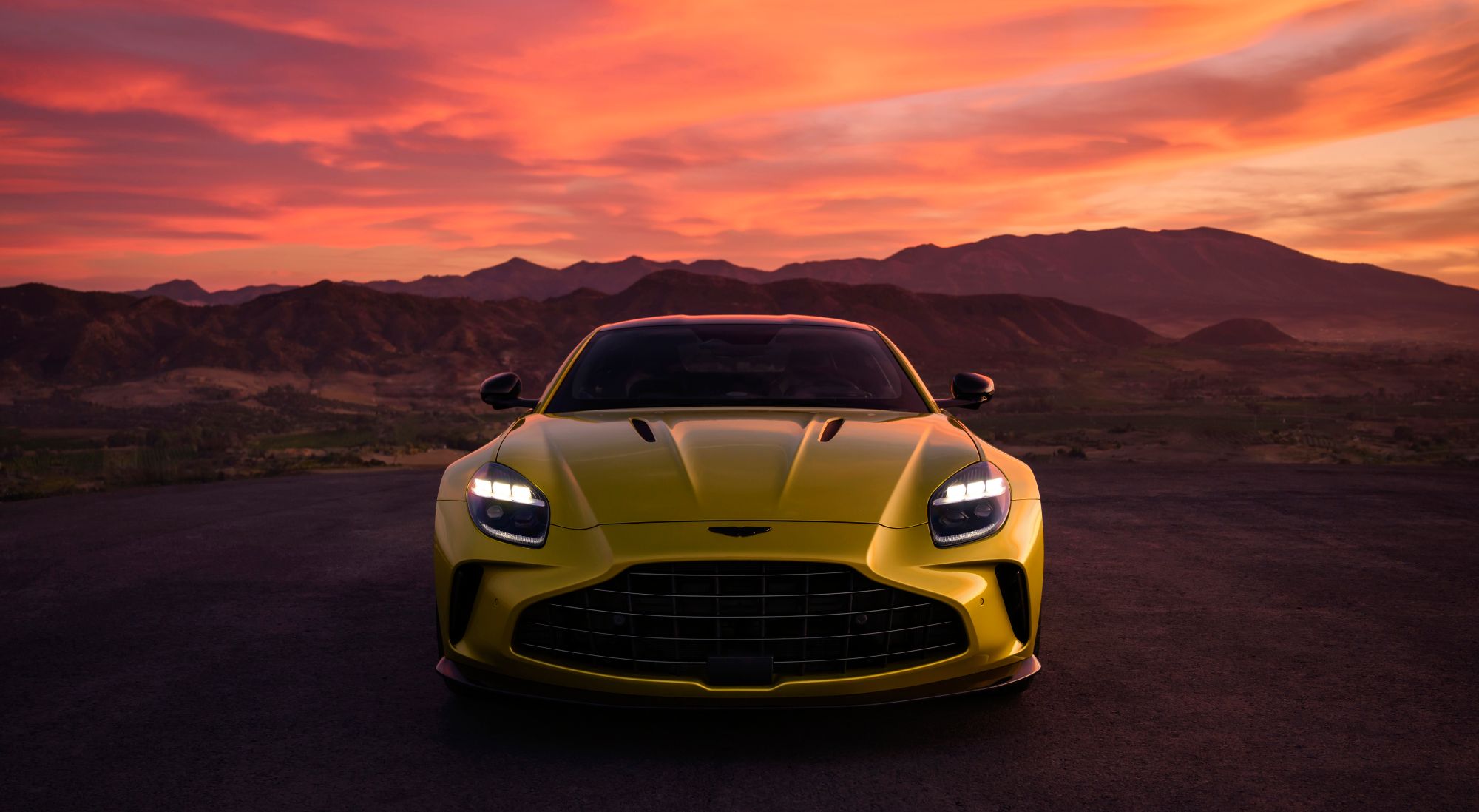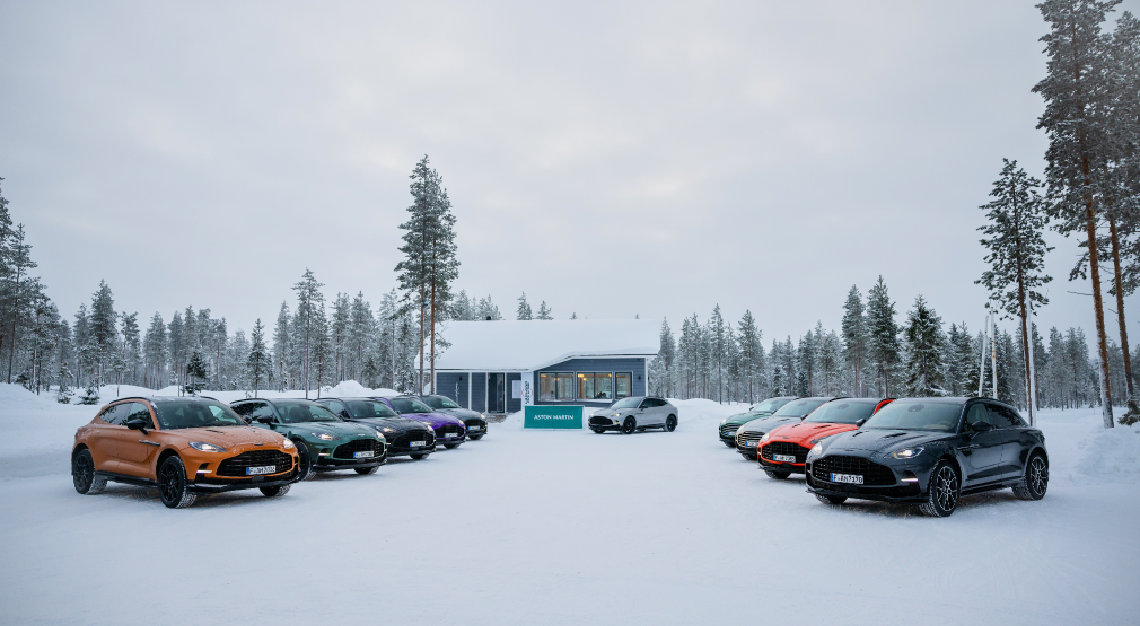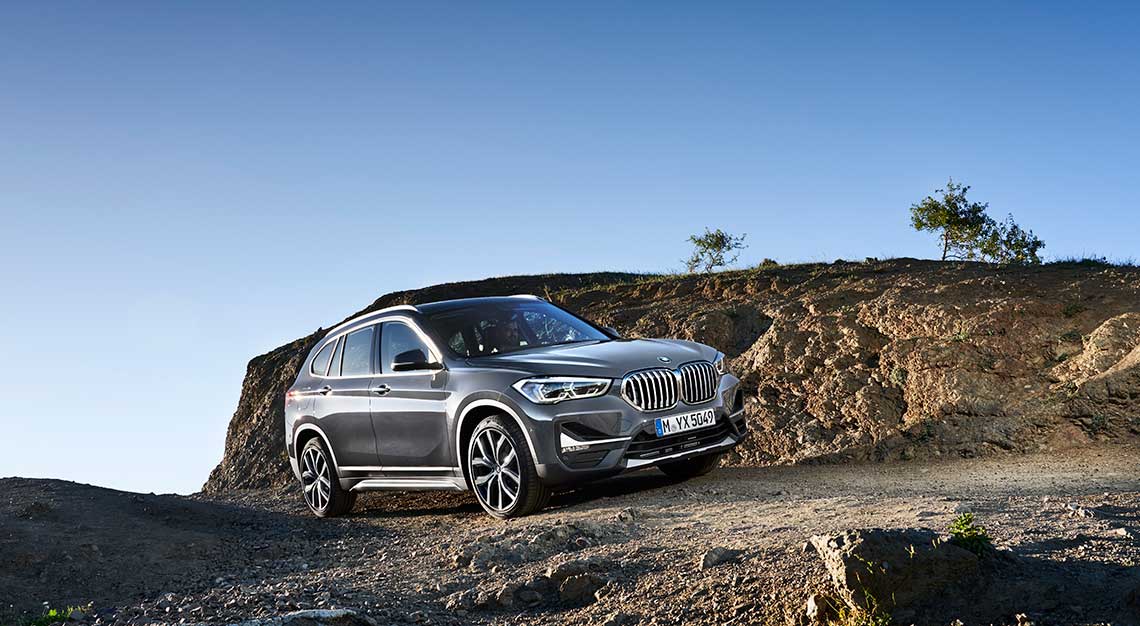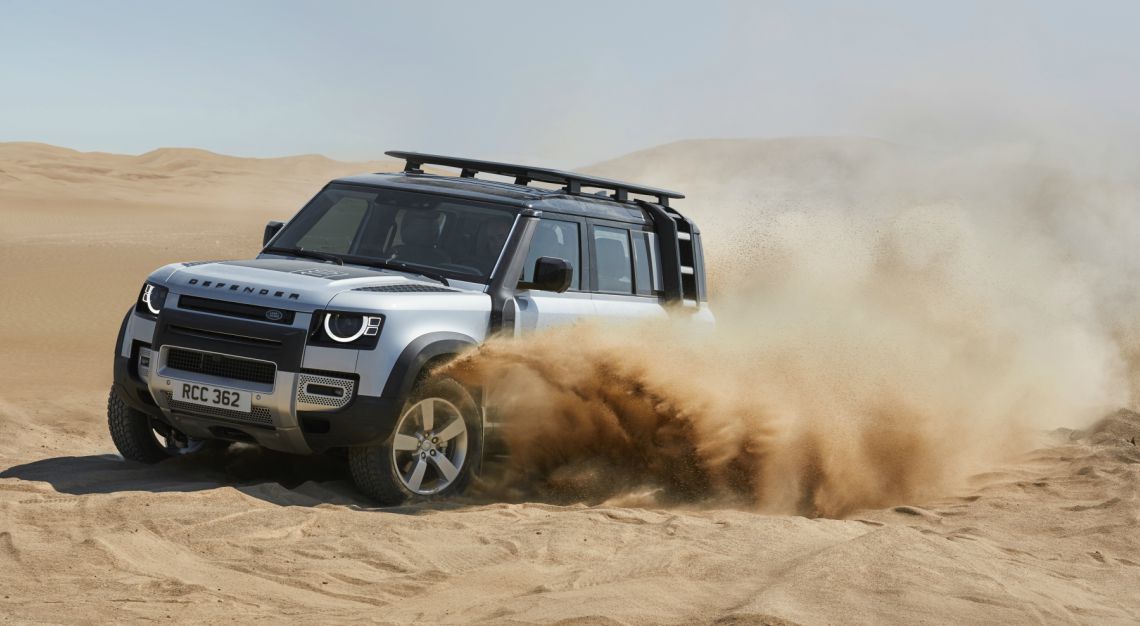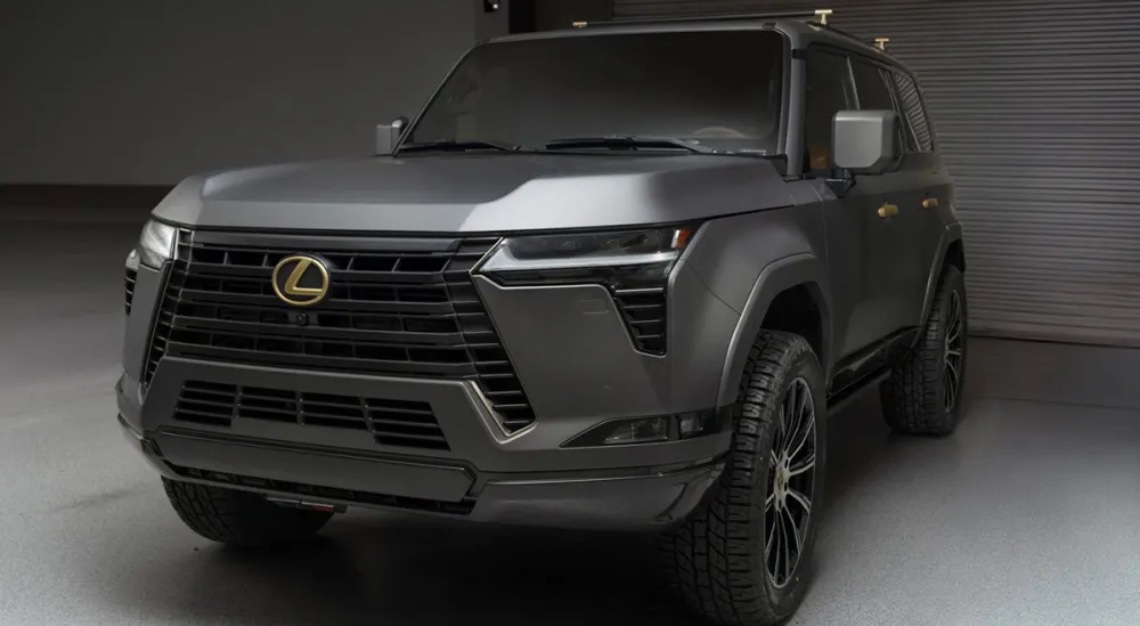We found that the newly revised 697 hp DBX707 offers better ride comfort and handling than its primary competition in the super-SUV category
We’d splashed through mud and water, and tip-toed over rocks. Now, as the quietly rumbling Aston Martin stood poised at the top of a steep, scree-covered track, it was time to select Hill Descent Control. Wait… mud, water, rocks, and Hill Descent Control in an Aston Martin? Indeed. We took Aston’s refreshed DBX707 SUV off the tarmac and into the wilds of Scotland. And, more important, brought it back again.
Sure, our run along farm tracks over the green hills and hollows of the Scottish Lowlands wasn’t exactly like tackling California’s fabled Rubicon Trail, whose hungry boulders have maimed many a Jeep, but it proved a point. The fact that 99.99 per cent of buyers would never consider getting down and dirty in their DBX707s on such an off-road gauntlet doesn’t mean that the model lacks the chops. The Engage Trail mode, for example, increases the ride height by 1.8 inches, programs the active roll-control system to allow more wheel articulation, and preloads the centre and rear differentials to ensure more traction.
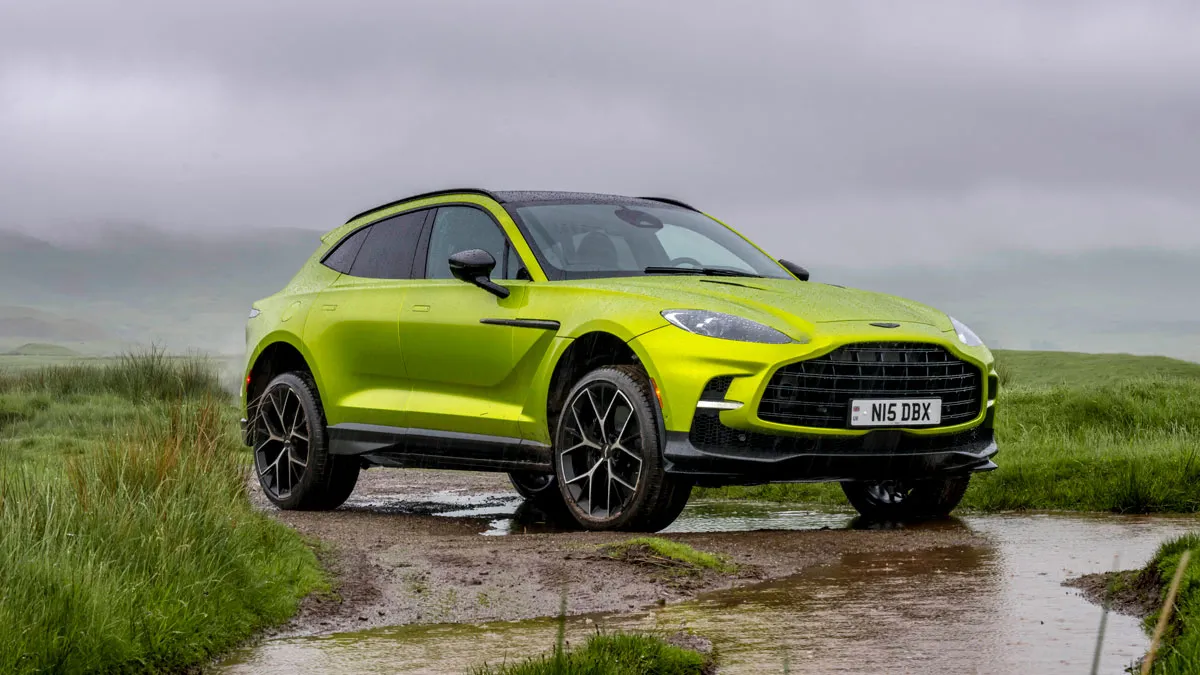
The 2025 version of the DBX707, which is scheduled to arrive in the third quarter of this year, is the third of five new or significantly refreshed Aston Martin models hitting the road in barely 18 months. It follows in the wheel tracks of the DB12 grand tourer–named Robb Report’s 2024 Car of the Year—and the recently launched 2025 Vantage, a challenge to the Porsche 911. And debuting later this year will be the 831 hp Vanquish and the mid-engine Valhalla supercar.
This flurry of activity is being driven by the marque’s boss Lawrence Stroll, who is determined to transform the storied British automaker into a high-power, high-fashion, high-tech alternative to Ferrari and Bentley. A lofty goal considering Aston’s tumultuous financial history.
That partly explains why the DBX707, which has a base price of US$249,000, is now the only DBX model available. The 542 hp DBX V8 and the 429 hp DBX Straight Six—a six-cylinder mild hybrid model that was only sold in China—have been discontinued. The decision to drop those other variants was also driven in part by the fact the DBX707 already accounted for more than 60 per cent of Aston’s worldwide sales.
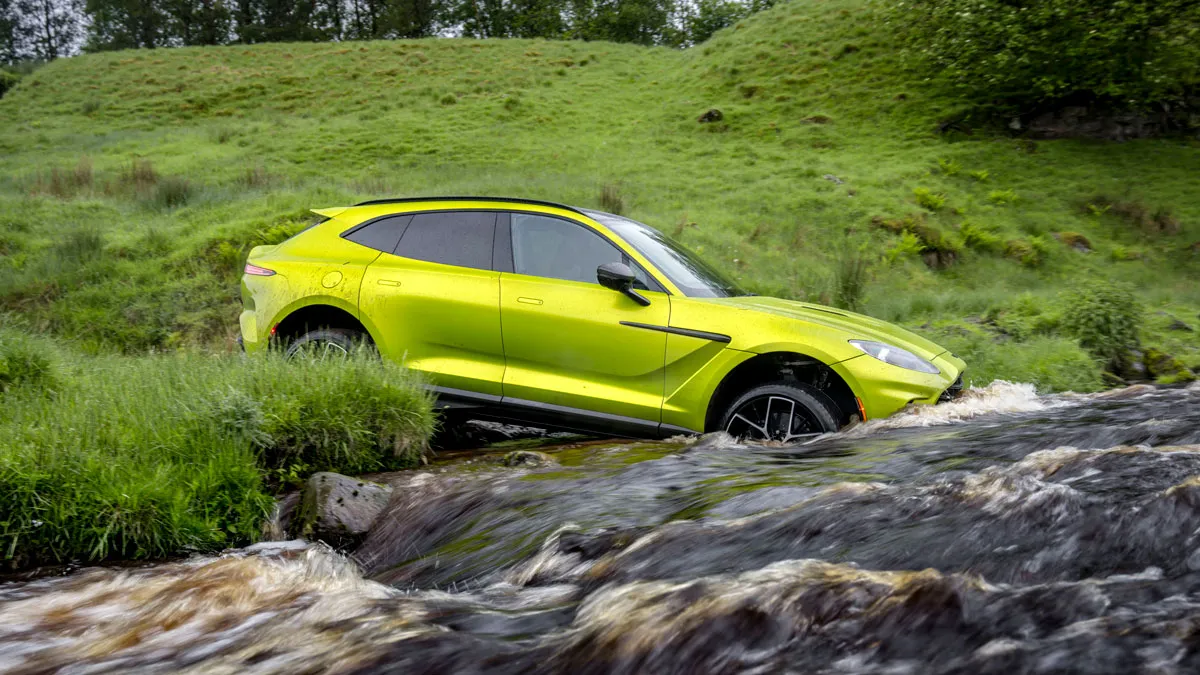
At first glance, the new DBX707 seems a very mild refresh. The door handles now automatically present themselves when you unlock the car, and there are new frameless exterior mirrors, which have integrated cameras to help with parking. Five new exterior colours are now available, there are new finishes available on the 23-inch wheels, and the latest edition of the iconic Aston Martin winged badge is presented on the hood and rear hatch. But that’s about it, at least stylistically.
The big news is all inside. This iteration is now equipped with the new infotainment system developed in-house at Aston Martin, and which premiered on the DB12. And, like the latter, the interior has been comprehensively upgraded to make the most of the system’s new screens and enhanced capability.
The digital instrument panel is a 12.3-inch display, 1.5 inches larger than those in the DB12 and revised Vantage. The second display—at the centre of the new dash, which now has more horizontal design elements to accentuate the width of the cabin—is a 10.25-inch touchscreen featuring single- and multi-finger gesture control. The displays look classy, though the type on the screens is on the small side and difficult to read at times.
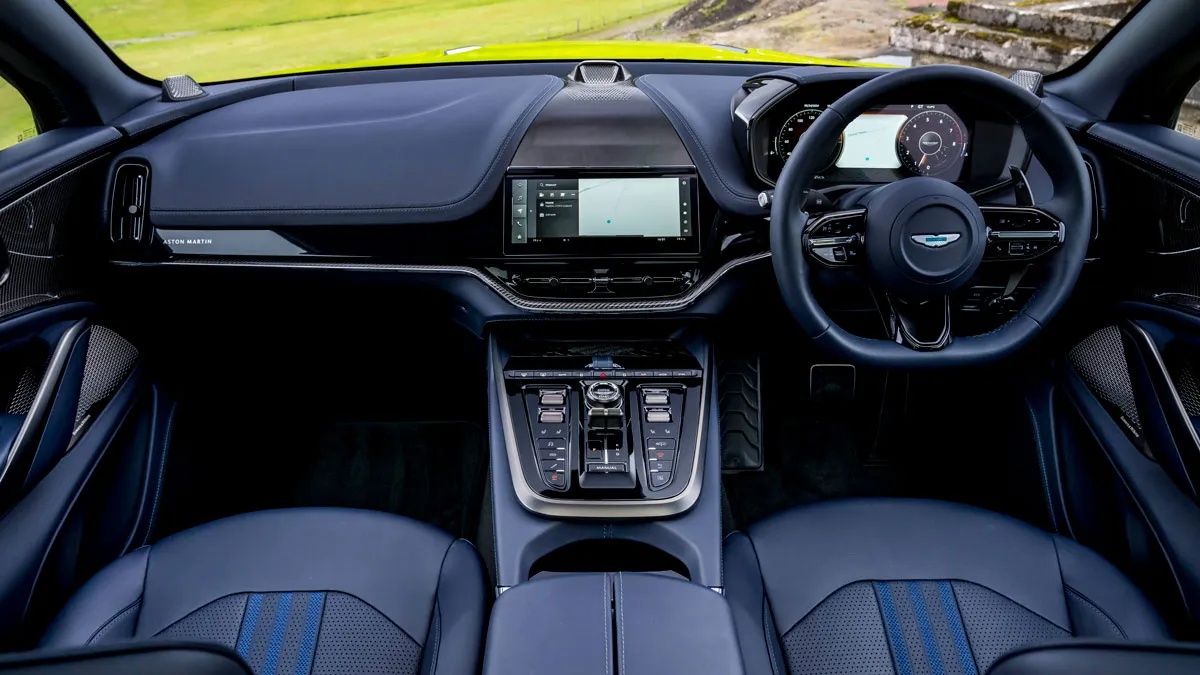
Underneath the central screen is a new centre console that, as in the DB12, features physical controls for functions such as gear selection, temperature control, and the audio system’s volume, and that’s also home to the rotary drive-mode selector. Other changes include a new steering wheel, redesigned door handles, and vertical air vents at either end of the dash, both of which are now matched to bright chrome or dark chrome interior jewellery.
Customers can choose from three different factory trim themes in a range of colours, or have their interior personalised by the customisation team at Q by Aston Martin. The standard 800-watt audio system features 14 speakers, but audiophiles can opt for a new Bowers & Wilkins system that packs a 1600-watt punch through no fewer than 23 speakers.
The oily bits have been left alone. That means the 697 hp version of AMG’s 4.0-litre twin-turbo V-8—making 900 Nm of torque—is under the hood. The mill drives all four wheels through AMG’s nine-speed Speedshift MCT wet-clutch transmission that has a Sport+ mode with launch control, and a full manual control mode.
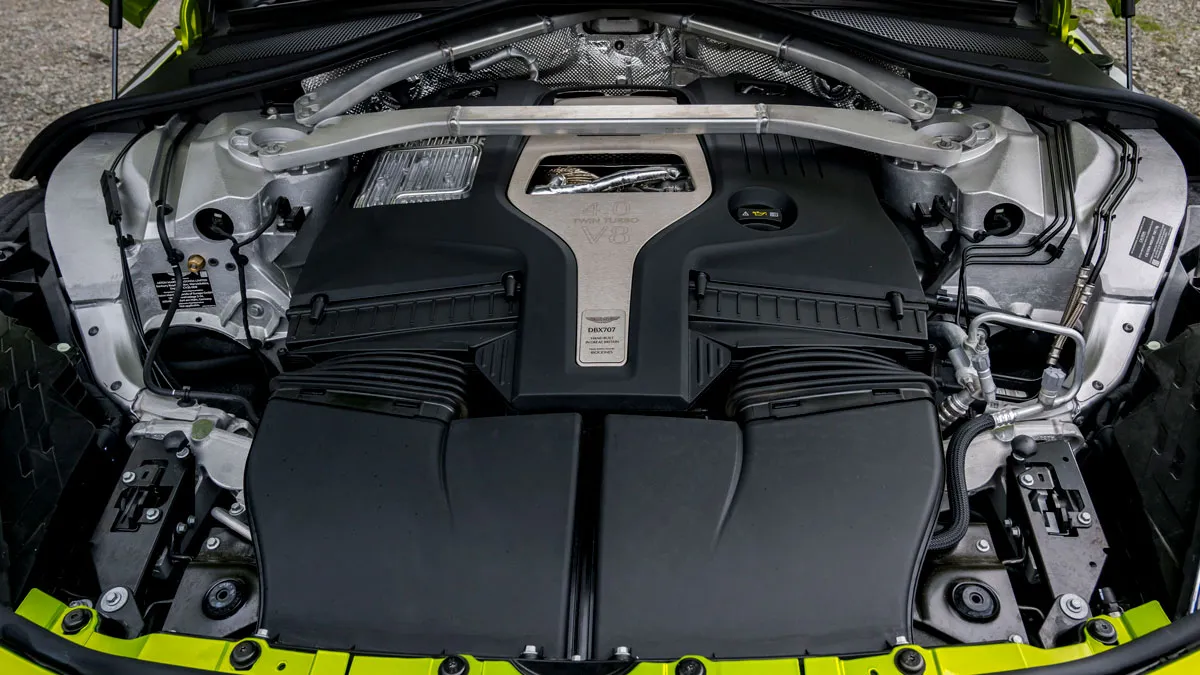
The DBX707’s all-wheel-drive system can send 100 per cent of the torque to the rear wheels via an e-diff that delivers a faster locking rate than before. Standard brakes are carbon-ceramic, with 16.5-inch rotors up front and 15.4-inch units at the rear, clamped by six-piston calipers with high-performance brake pads. Standard wheels are 22 inches, with a choice of cast or forged 23-inch alloy wheels available as options.
There have also been a few subtle tweaks to the hardware, according to the DBX707’s chief engineer Andy Tockley, most of which, ironically, have been done via software. The adaptive shocks and air springs have been recalibrated to improve the Aston’s response to steering inputs, and the level of assistance of the electronic power steering has been increased slightly in the default GT mode to reduce effort, and decreased slightly in Sport and Sport+ modes to add more weight without compromising feel. Oh, and there’s now slightly more rumble from the exhaust.
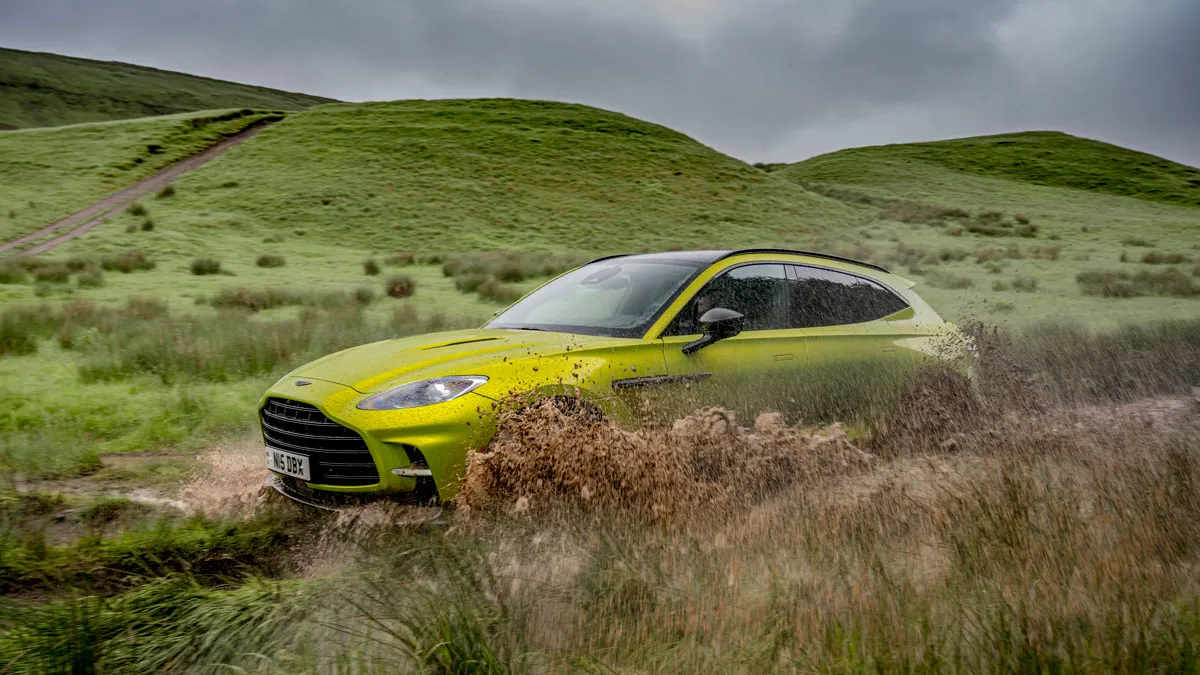
The DBX707 has the engine positioned behind the front-axle centre line for improved weight distribution, and there’s ample passenger room at the back, courtesy of a wheelbase longer than those of the Lamborghini Urus, Bentley Bentayga, and Ferrari Purosangue.
The DBX platform has also been designed from scratch and is not shared with other vehicles in the lineup, or as is the case with some of its competition, other models from sibling marques under a larger automotive group. This also means that Tockley’s team could engineer a custom suspension. And you can feel it in the first mile. This SUV is ferociously fast—it will sprint from zero to 100 km/h in just 3.1 seconds—yet it feels calmer and more composed than either the Urus or the Bentayga, not to mention the tightly-wound Purosangue.
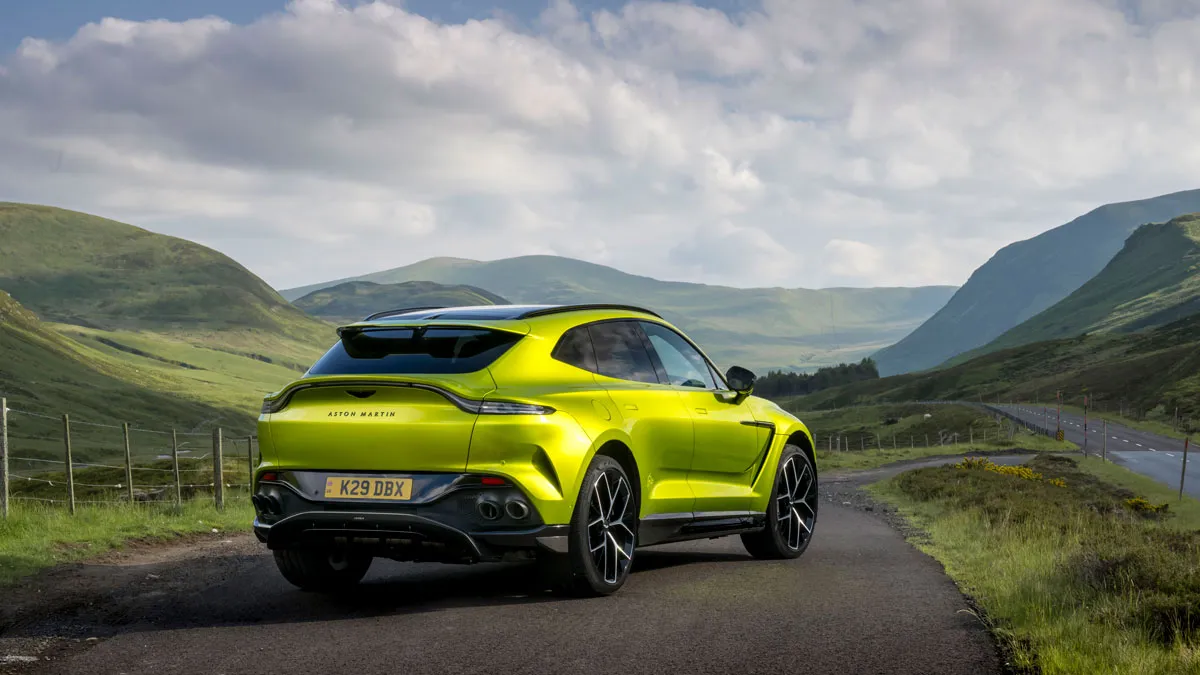
In GT mode, with the transmission left to its own devices, the vehicle is almost as quiet and comfortable as a luxury limousine. In Sport+ mode, and with the transmission switched to manual, this big and tall Aston flows easily down a winding back road, the rumbling V-8 punching it hard out of the corners, the big brakes effortlessly hauling it back from speed, and the precise steering enabling you to place it where you want it.
Of course, trying to make a heavy and high-riding SUV drive like a light and low-slung supercar is ultimately an exercise in futility. No matter how smart your engineers, the laws of physics are immutable. The new Aston Martin DBX707 is a compelling choice in this category, though, offering a better balance of ride comfort and handling than the Urus, Bentayga, and Purosangue—at any speed.
This story first appeared in Robb Report USA
